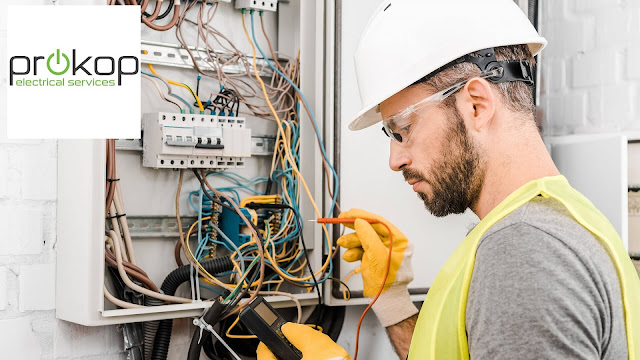Residential vs. Commercial Electricians: Understanding the Differences
When it comes to electrical work, whether it's for your home or your business, hiring the right electrician Moorabbin is crucial. But did you know that there are distinct differences between residential and commercial electricians?
Understanding these disparities can help you make an informed decision when seeking professional electrical services. Let's delve into the nuances of residential and commercial electricians to see what sets them apart.
The Basics of Residential Electricians
Residential electricians specialise in electrical work for homes and apartments. Their primary focus is on ensuring the safety and functionality of electrical systems within residential properties.
From installing lighting fixtures to repairing outlets, residential electricians handle a wide range of tasks tailored to the needs of homeowners.
Electricians who work in residential settings are adept at:
- Installing and repairing light fixtures, ceiling fans, and outlets
- Upgrading electrical panels to meet modern energy demands
- Troubleshooting electrical issues such as flickering lights or tripped circuit breakers
- Performing electrical inspections for homebuyers or renovations
The Expertise of Commercial Electricians
On the other hand, commercial electricians specialise in electrical work for businesses, offices, and industrial settings. Their expertise lies in dealing with larger-scale electrical systems and the unique demands of commercial properties.
Commercial electricians are trained to handle complex projects that require a deep understanding of commercial building codes and regulations.
Commercial electricians are skilled in the following:
- Installing and maintaining electrical systems for retail stores, office buildings, and warehouses
- Performing electrical wiring for commercial renovations and expansions
- Implementing energy-efficient lighting solutions to reduce utility costs
- Addressing power distribution and electrical infrastructure in industrial facilities
Key Differences in Training and Certification
One significant difference between residential and commercial electricians is the training and certification they undergo.
While both types of electricians require a solid foundation in electrical theory and safety practices, their specialised training sets them apart.
- Residential electricians typically complete apprenticeship programs focused on residential electrical systems and codes. They may also obtain additional certifications for specific skills such as HVAC wiring or home automation.
- Commercial electricians undergo more extensive training that covers a broader range of electrical systems and equipment. They often work with three-phase power, high-voltage systems, and advanced control systems found in commercial and industrial settings.
Project Scope and Complexity
The scope and complexity of projects handled by residential and commercial electricians vary significantly. Residential projects tend to be smaller in scale and involve routine installations, repairs, and maintenance tasks.
In contrast, commercial projects can range from wiring an entire office building to troubleshooting complex electrical issues in industrial plants.
Considerations for Hiring an Electrician
When choosing between a residential and commercial electrician Moorabbin for your project, consider the following factors:
- Scope of Work: Determine whether your project falls within the realm of residential or commercial electrical services.
- Experience and Expertise: Look for electricians with experience relevant to your specific needs, whether it's residential wiring or commercial installations.
- Licensing and Certification: Ensure that the electrician you hire holds the necessary licenses and certifications to perform the work safely and legally.
- References and Reviews: Seek recommendations from friends, family, or online reviews to find a reputable electrician with a track record of quality workmanship.
- Cost and Timeline: Obtain multiple quotes and compare pricing and project timelines before making a decision.
Conclusion
While both residential and commercial electricians share a common foundation in electrical knowledge, their areas of expertise and the nature of their work differ significantly. By understanding the distinctions between residential and commercial electrical services, you can make an informed choice when hiring an electrician Moorabbin for your next project.
Whether it's brightening up your home with new lighting or powering your business with reliable electrical infrastructure, the right electrician can ensure that your electrical needs are met safely and effectively.




Comments
Post a Comment